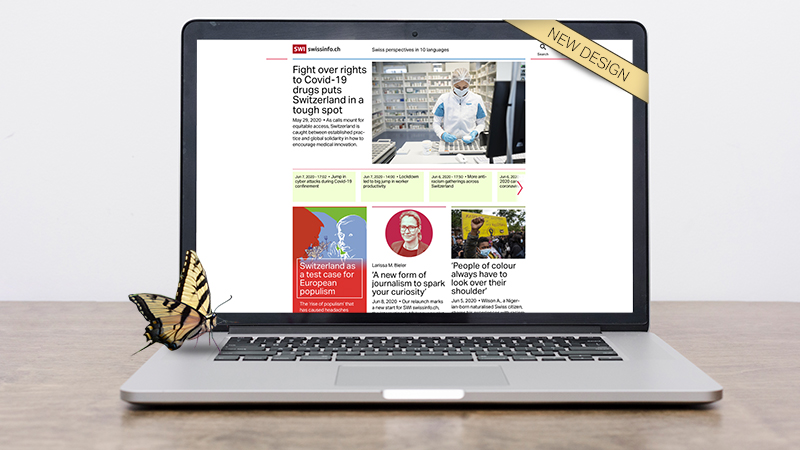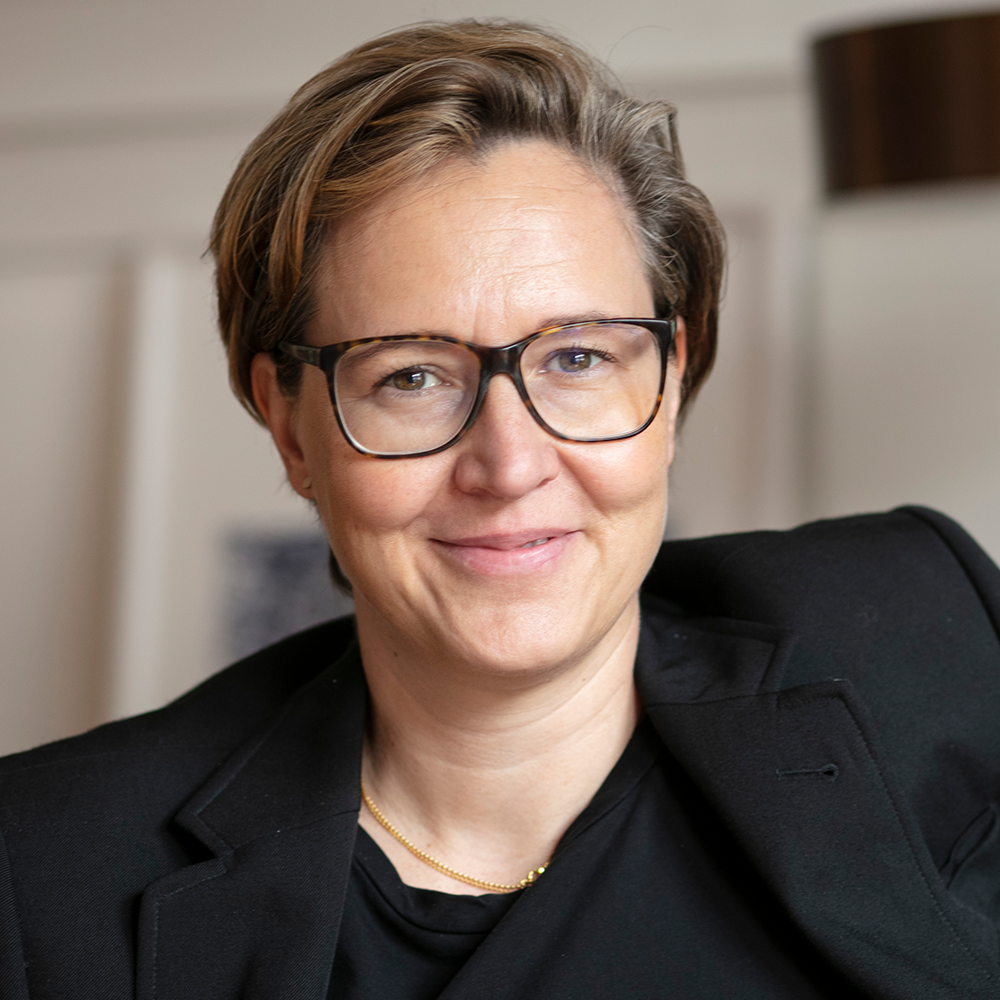‘A new form of journalism to spark your curiosity’
Our relaunch marks a new start for SWI swissinfo.ch, the international ten-language platform of the Swiss Broadcasting Corporation (SBC).
It’s a new start, and we’re pleased to show you, our readers, what we have been busy working on behind the scenes over the past two years: more analysis and a deeper dive into the questions and issues that impact our world.
“You can anticipate a bold approach to challenging questions.”
Larissa M. Bieler
The core product of this new strategy is a “focus” page.
We want to keep you informed not only about current affairs in Switzerland, but also about the many challenges facing our societies today – such as aging, education and health.
If this is the first time you’ve landed on our home page, we’ve made it easy for you to find the “focus” pages which present a range of perspectives on these important issues. (See the menu on the top right).

More
How to navigate the new SWI swissinfo.ch
This new content is carefully written and curated by our team of journalists, based on diligent reporting and research. Whenever possible, we’ve also provided the historical context thanks to our rich online archive from the past 20 years, and radio treasure chest from our predecessor, Swiss Radio International, which was founded in 1935. We also hope to engage with you, our readers, in our new Q+A section that we are activating to discuss some of today’s most pertinent topics.
A uniform look and diverse content in multiple languages
We want to be recognised worldwide as a journalistic platform that provides Swiss perspectives.
We worked with Zurich graphic designer Emanuel TschumiExternal link to create a design with a strong brand identity in all of our ten languages. Our goal: timelessness, quality and objectivity, and – at the heart of the design – “Swissness”.
Visually, the font takes centre stage. For the first time, all ten languages will share a visual identity, based on the “International Typographic Style” or “Swiss Style”: a graphic design style invented in the 1920s in Russia, the Netherlands and Germany, which was then developed further in Switzerland starting in the 1950s, before achieving international renown.
Top Swiss illustrators have also contributed to the focus pages, showcasing the breadth of Swiss design.
Swiss voices – unadulterated and unvarnished – on international debates
Through its diplomatic, economic and cultural links with the rest of the world and as host of numerous international organisations, Switzerland has long played the role of international mediator and provided a forum for global discussions. Even if its position is sometimes ambivalent, one of the country’s strengths lies in international exchange.
You can read more about Switzerland’s image on our home page, as well as the global debates it is part of.
For Swiss perspectives and positions on international topics, see here. We sometimes also explore issues that are relevant to our specific language communities.
Spanish, Portuguese, Arabic, Chinese, Japanese and Russian
As a public service news organisation, we take our independence seriously, and that means we don’t shy away from taking a critical view of Swiss foreign or economic policy. We exemplify the fact that Switzerland is a place where freedom of the press and speech prevails and the diversity that this allows.
In the early stages of debate
The new design allows us to have more direct exchanges with you – on subjects of relevance both to Switzerland and to the rest of the world. We are striving to ensure quality, and this includes the conversation with our readership on the most pressing topics of the day, not the number of clicks we can generate for each article. This requires courage and commitment, even for a public service media.
In these politically polarised times, journalism has to achieve much more than it did in the past, especially when it comes to dialogue. Today we have to – and want to – deliver sustainable, high-quality, complex, and, above all, independent journalism.
For us, dialogue does not mean collecting “likes,” as many news sites do on third-party platforms. This often merely leads to more polarisation. Instead we want to explore topics and to engage with you, our readers from all over the world, as equals.
Building on our focus pages, we want to initiate more debates and incorporate your contributions into our reporting. This kind of dialogue must be the focal point. We are convinced that we can only develop further by listening to the communities we serve.
So we look forward to your suggestions and ideas. Are you an expert in one of our focus areas? If so, please get in touch with our journalists – you’ll find their contact information in their author profile.
We have especially been working hard to stay in touch with the 770,900 Swiss living abroad. This is a community close to our hearts and we seek to provide them with the information they need.
Join us in this endeavour
Balance, depth and context are all SWI swissinfo.ch’s strengths, and with our new design we believe we are now showcasing them better.
With our website’s new structure and navigation, we want to guide you smoothly from one relevant piece of content to the next – and to exciting debates. We’re convinced that we’re offering you a much improved user experience.
The website is certainly not perfect yet, but this is a major step forward. With your help, it will continue to evolve.
Now you know what we are aiming to achieve: better journalism in a partnership of equals. Join us on this journey. We look forward to your feedback: larissa.bieler@swissinfo.ch
Looking for a new podcast? Check out our latest, “Inside Geneva”, a discussion of global challenges with experts working to tackle them in Switzerland’s international city. It gives insight into what is negotiated and decided in Geneva, how power is distributed there, and what consequences this has for all of us.

In compliance with the JTI standards
More: SWI swissinfo.ch certified by the Journalism Trust Initiative

You can find an overview of ongoing debates with our journalists here. Please join us!
If you want to start a conversation about a topic raised in this article or want to report factual errors, email us at english@swissinfo.ch.